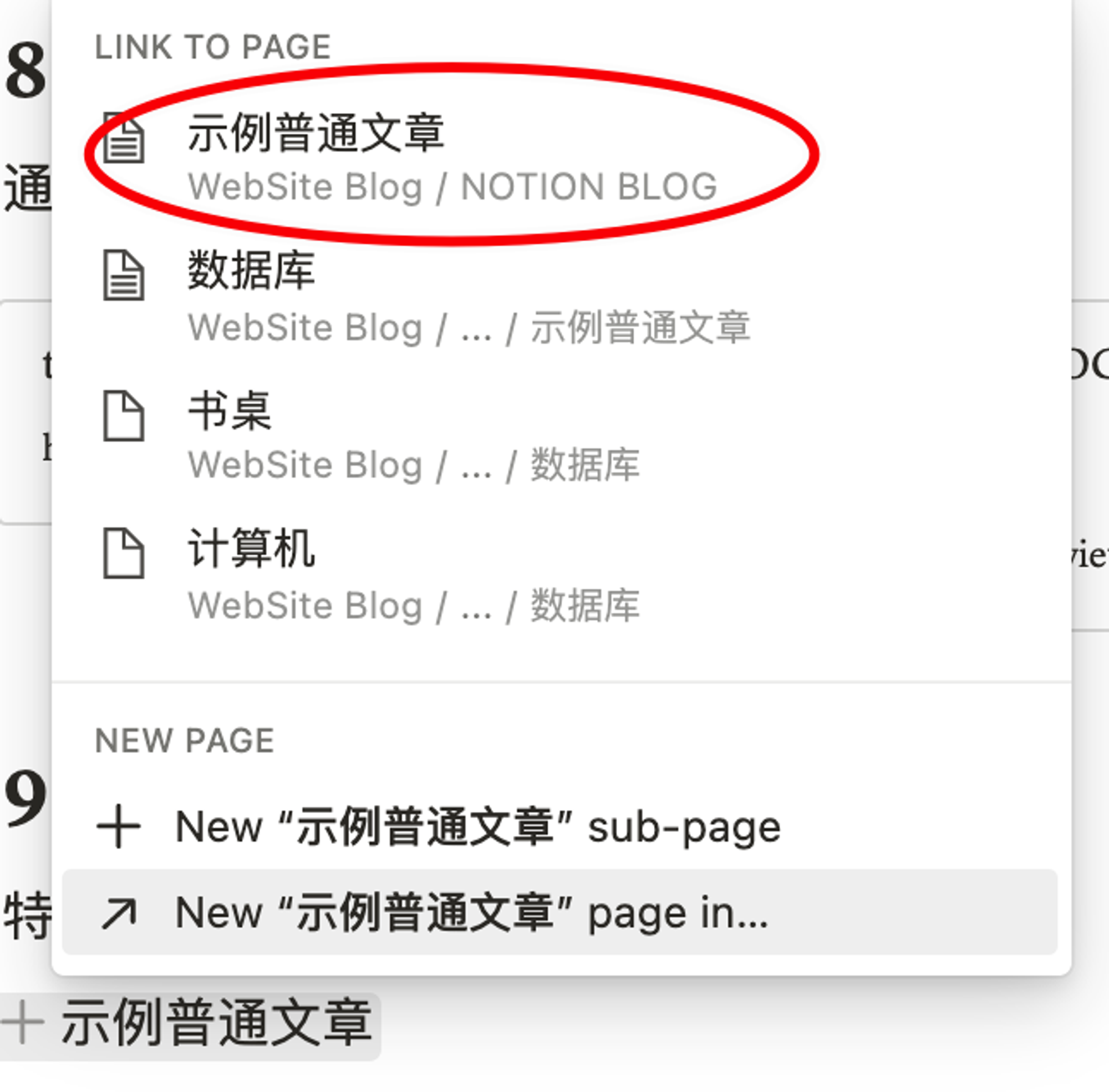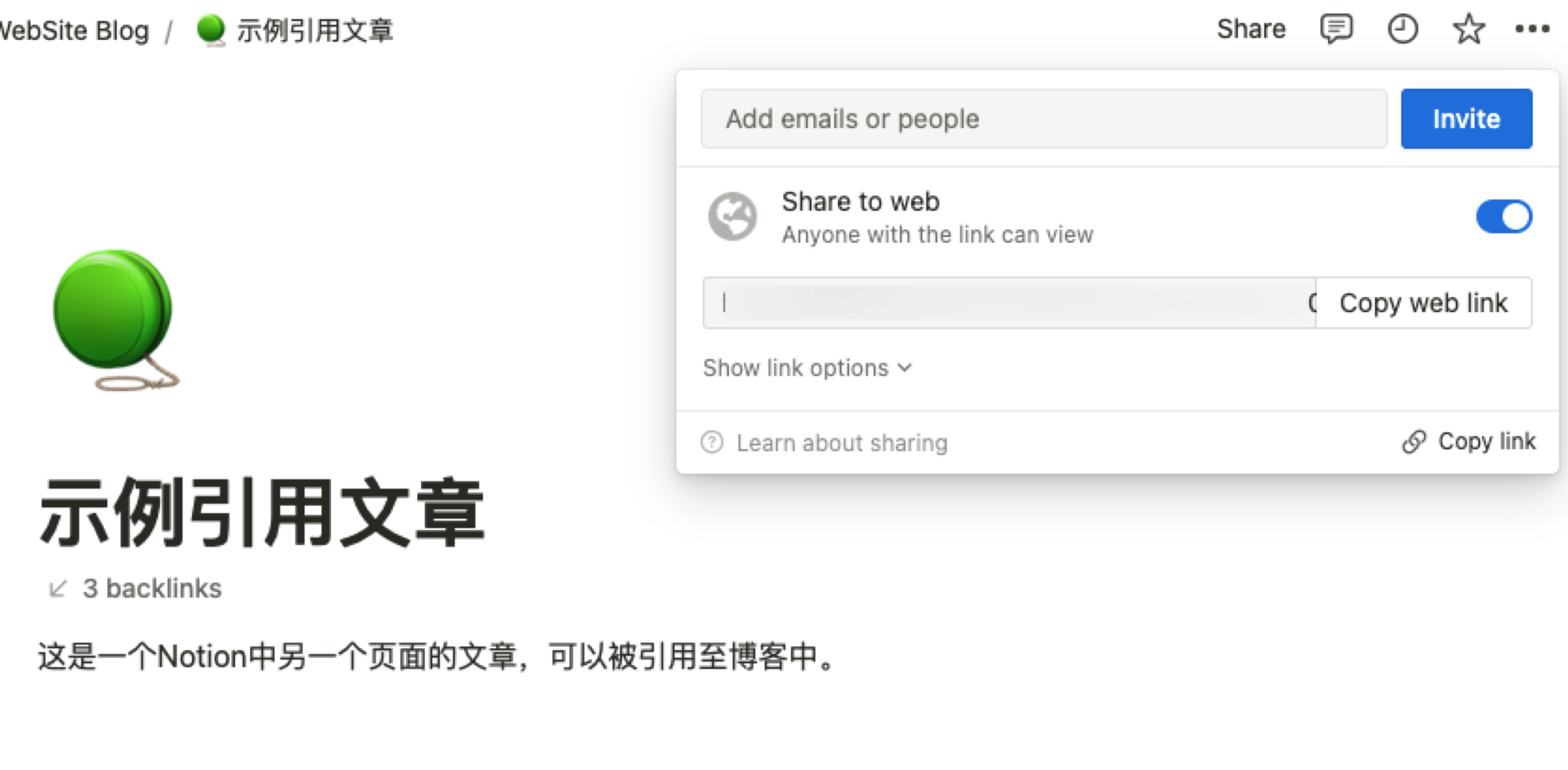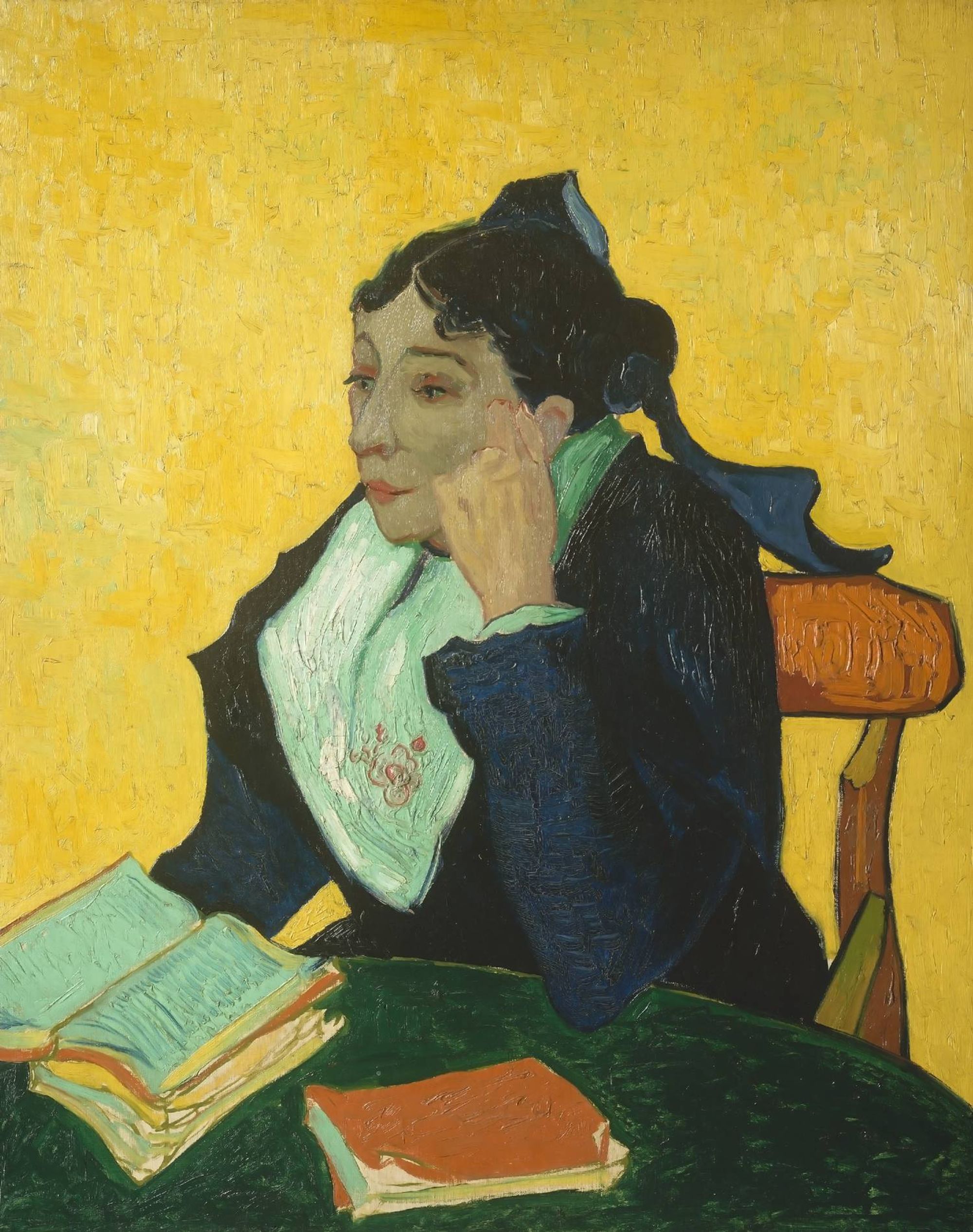type
Post
status
Published
date
Nov 5, 2021
slug
example-1
summary
这是示例的文章摘要,摘要内容可被用做搜索,预览。文章列表默认展示概要;若要在列表直接展示文章内容,可在blog.config.js中配置。
tags
思考
建站
category
学习思考
icon
password
Property
Nov 11, 2022 09:43 AM
一、模板使用说明
Notion页面中,每一篇文章都有以下属性🤔:
属性 | 必填 | 说明 | 备注 |
title | 是 | 文章标题 | |
status | 是 | 发布状态 | (仅当状态为 Published 时会被 展示) |
type | 是 | 页面类型 (博文 Post / 单页(Page) | 单页不会在博文列表显示 。 |
summary | 否 | 内容摘要 | 搜索和简略显示会用到 |
date | 否 | 发布日期 | 在V3.3.9之前的版本此项为必填。 |
category | 否 | 文章分类 | 可以自定义 |
tags | 否 | 文章标签 | 可多个,建议不要太多 |
slug | 否 | 文章短路径 | (每篇文章唯一,请勿 重复) |
icon | 否 | 菜单栏图标(仅当 Page类型有效) | 可以参考:图标库地址 |
password | 否 | 文章加锁 | 需要输入密码才允许访问 |
二、示例段落
生活的意义并不是与他人争高下,而在于享受努力实现目标的过程,结果只是对自己行动的嘉奖。

1.将进酒
君不见黄河之水天上来,奔流到海不复回。
君不见高堂明镜悲白发,朝如青丝暮成雪。
人生得意须尽欢,莫使金樽空对月。
天生我材必有用,千金散尽还复来。
烹羊宰牛且为乐,会须一饮三百杯。
岑夫子,丹丘生,将进酒,杯莫停。
与君歌一曲,请君为我倾耳听。
钟鼓馔玉不足贵,但愿长醉不愿醒。
古来圣贤皆寂寞,惟有饮者留其名。
陈王昔时宴平乐,斗酒十千恣欢谑。
主人何为言少钱,径须沽取对君酌。
五花马、千金裘,呼儿将出换美酒,与尔同销万古愁。
2.代码
// C++ #include <iostream> using namespace std; // main() 是程序开始执行的地方 int main() { cout << "Hello World"; // 输出 Hello World return 0; }
/* C# */ using System; namespace HelloWorldApplication { class HelloWorld { static void Main(string[] args) { Console.WriteLine("Hello World"); Console.ReadKey(); } } }
# Bash 安装zsh $ sudo apt install zsh # 配置ohmyzsh $ sh -c "$(curl -fsSL <https://raw.github.com/robbyrussell/oh-my-zsh/master/tools/install.sh>)" # 配置ohmyzsh插件 # zsh-autosuggestions $ git clone git://github.com/zsh-users/zsh-autosuggestions $ZSH_CUSTOM/plugins/zsh-autosuggestions # zsh-syntax-highlighting $ git clone <https://github.com/zsh-users/zsh-syntax-highlighting.git> ${ZSH_CUSTOM:-~/.oh-my-zsh/custom}/plugins/zsh-syntax-highlighting // 启用插件 $ vim .zshrc plugins=(git z zsh-autosuggestions zsh-syntax-highlighting)
/** * Java代码 **/ @Test public void test11() { long start = System.currentTimeMillis(); int a = 0; for(int i=0;i<1000000000;i++){ try { a++; }catch (Exception e){ e.printStackTrace(); } } long useTime = System.currentTimeMillis()-start; System.out.println("useTime:"+useTime); }
#!/usr/bin/python3 import json # Python 字典类型转换为 JSON 对象 data = { 'no' : 1, 'name' : 'hello', 'url' : 'http://tangly1024.com' } json_str = json.dumps(data) print ("Python 原始数据:", repr(data)) print ("JSON 对象:", json_str)
#file.edit(path.expand(file.path("~", ".Renviron"))) library(telegram.bot) library(stringr) # Initiate the bot session using the token from the enviroment variable. bot = Bot(token = bot_token('your_bot')) usr_list <- c(12344566, 12345566) create_image <- function(prompt, chat_id) { if (chat_id %in% usr_list) { if (stringr::str_detect(prompt,"seed=|seed:")) { seed <- as.numeric( str_extract(prompt, "[^=:]*$") ) prompt <- prompt |> str_remove("[^=:]*$") |> str_remove("(seed:)|(seed=)") } else { seed <- sample.int(1e+9, 1) prompt <- prompt } sendtopy <- paste0( 'conda run -n ldm python scripts/txt2img.py --prompt "', prompt, '" --plms --skip_grid --n_samples 1 --seed ', seed ) system(sendtopy) df <- file.info(list.files("~/Projects/stable-diffusion/outputs/txt2img-samples/samples", full.names = T)) most_recent <- rownames(df)[which.max(df$mtime)] bot$sendPhoto(chat_id = chat_id, photo = most_recent) message_to_bot <- paste0( "The above image was generated by stable diffusion using prompt: ", prompt, " and seed:", seed ) bot$sendMessage(chat_id = chat_id, text = message_to_bot) } else { bot$sendMessage(chat_id = chat_id, text = "You are not allowed to use this bot!") } } updater <- Updater(token = bot_token('your_bot')) start <- function(bot, update){ bot$sendMessage(chat_id = update$message$chat_id, text = sprintf("Hello %s!", update$message$from$first_name)) } start_handler <- CommandHandler("start", start) updater <- updater + start_handler prompt <- function(bot, update){ create_image(prompt = stringr::str_remove(update$message$text, "/prompt"), chat_id = update$message$chat_id) } updater <- updater + CommandHandler("prompt", prompt) unknown <- function(bot, update){ bot$sendMessage(chat_id = update$message$chat_id, text = "Sorry, I didn't understand that command.") } updater <- updater + MessageHandler(unknown, MessageFilters$command) echo <- function(bot, update){ bot$sendMessage(chat_id = update$message$chat_id, text = update$message$text) } updater <- updater + MessageHandler(echo, MessageFilters$text) updater$start_polling()
折叠的代码
html { background-color: red; }
3.公式
4.数据
5.代办
洗衣
做饭
6.折叠列表
点击展开
点击展开
点击展开
内容可以多级嵌套
7.引用✍️
书中自有黄金屋,书中自有颜如玉 君不见黄河之水天上来,奔流到海不复回
8. 链接引用
外部引用
内部引用,两种方式:
- 加锁文章 - 密码123456 ,这篇文章在站点中会被替换成博文内部的链接。
例如
https://www.notion.so/tanghh/4d7cafcd57a4425590c5821a6f40dfe8 会被替换为 /article/4d7cafcd57a4425590c5821a6f40dfe8在notion中输入
@符号后输入文章名即可搜索关联 。(注意:仅限用此形式,若以书签形式引用notion页面,将被视为外部链接)
- 在博客站点中复制你的文章链接,再粘贴到notion博客中
9. 照片集

10. 内嵌网页
11. 同步块
Notion支持将不同页面的块进行同步,即 SyncBlock,以下是来自另一个页面的块:
【sync-block】这是一段来自示例文章-3的段落 ,通过 SyncBlock同步。
注意 : 同步块的使用条件是源页面也要被开放共享 ,否则NotionNext将无权访问,页面上会被忽略渲染。

12.连接Notion外部页面
存在这种情况: 你的文章不是全都放在NotionNext指定的数据库中,而是已经放在了Notion笔记的其他任意位置,这时候你可以用
page-link的方式将它作为嵌套页面放置在博客中。但是前提条件是:被引用的页面需要Share to web(开启共享),否则网站无权访问。

这是一个Notion中的其他页面,使用page-link链接至此:示例引用文章
注意:链接打开的功能将在V3.6.0中实现,目前打开会提示404错误
三. 多级目录
heading标题在博客中自动转为目录
二级目录3
多级列表
事物的必然性
- 事物按规律变化,也有一种不可避免的性质.这种性质就叫做必然性
- 事物的必然性,是事物本身的性质(我们反对宿命论的是其认为这一切是受神明的支配,而不是反对事物发展中存在的不可避免的性质的事实)
- 第三级别列表
- 第三级别列表
- 其决定于它自己本身发展的情况和周围的条件
- 第三级别列表
- 第三级别列表
四.模板说明
若要部署你的NotionNext项目,请复制该模板,并按照模板格式创建文章:
五. 评论插件
系统支持 以下六种插件,并且可以同时开启,点击评论区的Tab来体验。
- Waline
- Giscus
- Valine
- GitTalk
- Utterance
- Cusdis
- Author:无常 Anitya
- URL:https://anitya.fun/article/example-1
- Copyright:All articles in this blog, except for special statements, adopt BY-NC-SA agreement. Please indicate the source!
Relate Posts







